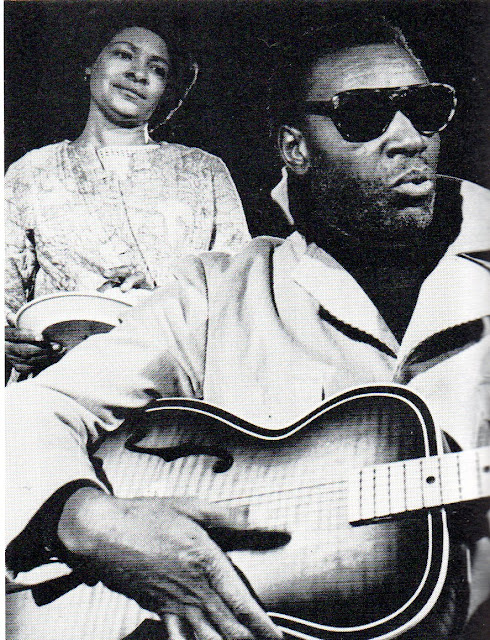 |
| Frances Foster, Moses Gunn. |
 |
| Frances Foster, Moses Gunn. |
The critics hedged in
their acceptance of this rather enigmatic naturalist-symbolist drama, set in a
Chicago ghetto apartment during the mid-50s just prior to the explosion of the
Civil Rights movement. “To an extent,” noted Clive Barnes, “it lacks that
special element of drama, that quality of surprise, that quick response of the
imagination. . . . And yet the work nags with its truth.” “[A] talented . . .
but unsatisfactory play,” added Walter Kerr. And Julius Novick remarked, “the
play . . . , though not devoid of integrity and even a measure of distinction,
is . . . somewhat less than admirable.”
Blind Jordan (Moses Gunn), a sightless street singer, born in a whorehouse (“a blind pig”), comes to the door of a white family’s domestic. She is 30-year-old Alberta (Frances Foster), who lives with her churchgoing, stodgy, possessive, whisky-tippling mother, Weedy (Clarice Taylor). Jordan is searching for a lost love named Grace. Also present is a numbers-running uncle, Doc (Adolph Caesar).
Jordan is persuaded by the lonely,
love-starved Alberta to stay with her, although Weedy resents him. When Weedy departs
for a religious meeting in Montgomery, Alabama, Jordan leaves as well—at Alberta’s
request—but soon returns. Weedy comes home amazed and disturbed at the new
spirit of defiance—black women refusing to ride in the back of the bus!—she
observed down South. The mysterious singer is persuaded by Weedy to depart and
Alberta’s behavior begins to resemble that of her complacent, old-fashioned
mother.
 |
| Clarice Taylor, Adolph Caesar. |
The theme of black complacency in the face of shifting social and racial attitudes was insufficiently explored, thought some. Excessive dialogue and length, shallow character development, obscure plotting, and lack of variety were cited. However, Martin Gottfried was so moved he called the work “one of the most artistically conceived and best-written . . . I have seen in a long time.” And T.E. Kalem joined in, feeling that “this consecrated act of theatre was eloquent, powerful, moving and beautiful.” Also reaping positive feedback were the set, the direction, and the ensemble.
Playwright Dean won a
Drama Desk Award for Most Promising Playwright, as well as the Elizabeth Hull—Kate
Warriner Award. A TV adaptation appeared in 1974.
Next up: Subject to Fits